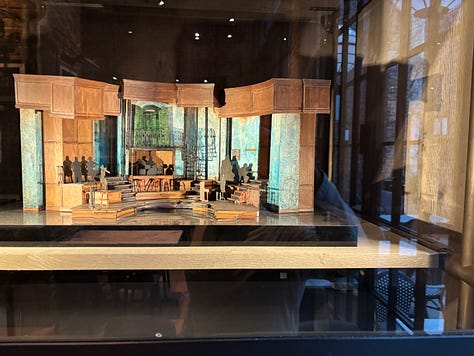
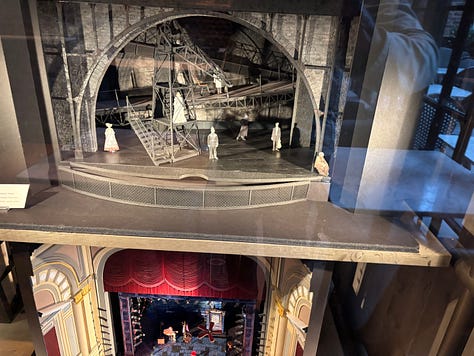
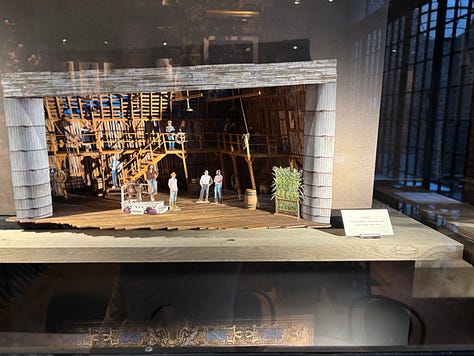
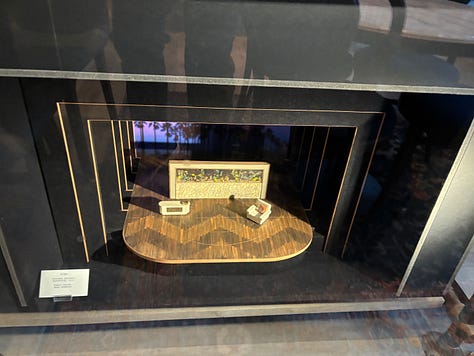
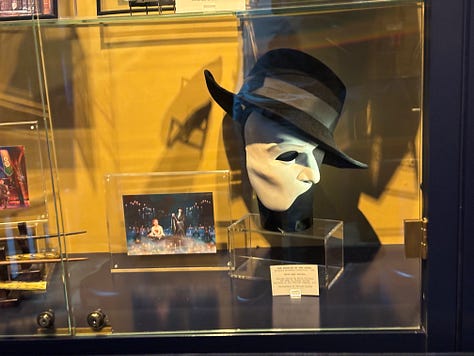
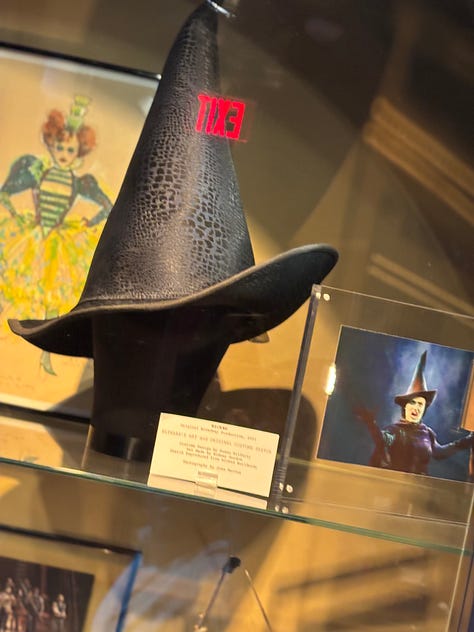
Near the corner of 48th Street and 8th Avenue, tucked into the electric chaos of Manhattan’s Broadway Theater District, stands a hotel called the Civilian. At first glance, it might look like any other boutique spot catering to the Broadway-bound and Times Square selfie crowd. But, as with all things I’m drawn to lately, something quiet and unassuming kept tugging at me long after I’d left. Like a toddler in a cereal aisle, it just wouldn’t let go.
I didn't set out to write about the Civilian. In fact, I almost dismissed it altogether—another “micro-hotel” in a city full of gimmicks and charm. But as I continue to live into this project—ANEW, this ongoing question of how we imbibe newness and let it transform us—I realized that the Civilian was less of a place and more of an invitation. A portal, even.
The hotel doubles as a tribute to Broadway history. Framed playbills, props, and costumes—like the witch’s hat from Wicked or the mask from Phantom—live among the walls. Most captivating, though, are the dioramas. These are the miniature scale sets, painstakingly built to show what a production might become. They’re not finished works; they’re promises. Tiny models of imagined worlds. Blueprints for belief.
Standing in front of them, I was transported back to dusty backstage corners of my own past—high school, college, small black-box theaters, and larger stages where I, too, once helped conjure whole universes from tape marks and sweat. The goal was always to disappear into something bigger than ourselves. To remember that we could.
The Civilian reminded me that theater—like all good things—is made twice: once in the mind, and again in the world. The dioramas are both artifact and aspiration. They hold ghosts, yes—but also potential. A kind of spiritual scaffolding.
Later that same trip, I saw Purpose, a new play written by Branden Jacobs-Jenkins, directed by Phylicia Rashad, and starring LaTanya Richardson Jackson—two women who once shaped me when I was a young actor and studio teacher in New York. The play pulsed with questions about legacy, pain, and identity. It felt like sitting in the middle of a family reckoning and being reminded that the past is always with us, whether or not we choose to look it in the eye.
And that’s what the Civilian did, in its own quiet way. It opened a door—not just to Broadway or nostalgia, but to a kind of inner theater. It asked me to imagine again. To begin again. To be called back to purpose, not as a grand declaration, but as a whisper behind the curtain, beckoning.
Sometimes, you arrive at a place not knowing what you’re walking into. You think it’s just a hotel. Just a room. Just a night.
And then it becomes the scene change you didn’t know you needed.
Curated Listening:
The show that got me hooked on Broadway Musicals was Michael Bennett’s “A Chorus Line.” The trials and tribulations of the gypsies, those folks who were in the chorus, but made their living actually making the stage come alive, is one of the reasons many people flock to the big musical each year in droves. Listen to the iconic track from Michael Bennett’s musical, “One Singular Sensation,” HERE.




